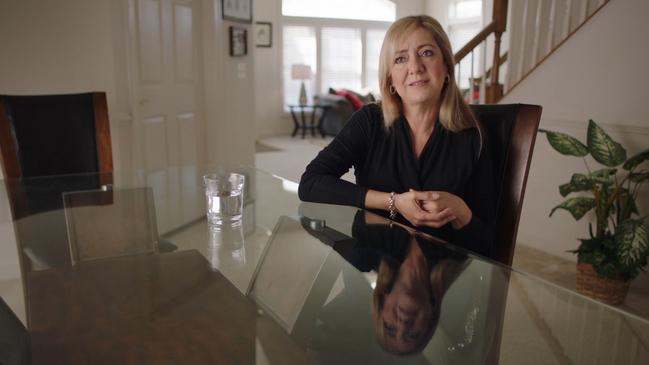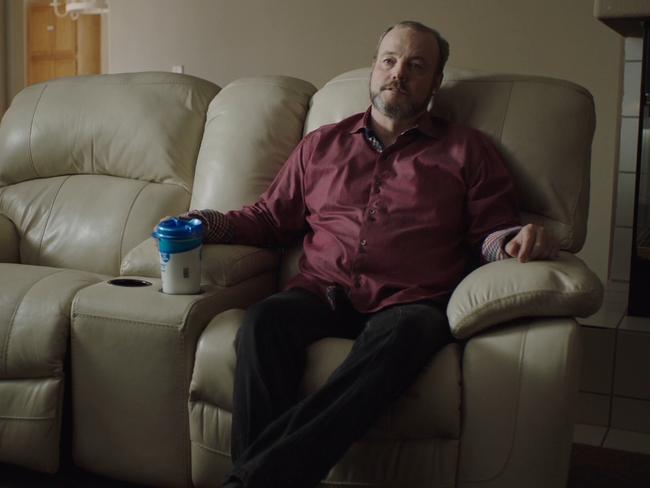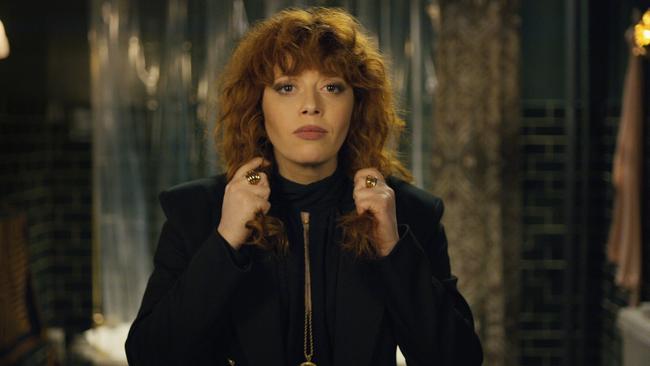Tragedy behind the punchline
A documentary about the Lorena Bobbitt story goes beyond the tabloid headlines.

Lorena is a new four-part docuseries from director Joshua Rofe and executive producer and Academy Award winner Jordan Peele, who won the best original screenplay category for the horror movie Get Out (2018) and who also produced Spike Lee’s persuasive BlacKkKlansman. Lorena mesmerisingly reveals the long-ignored narrative at the core of an international sensation in 1993, when a 23-year-old woman called Lorena Bobbitt, an immigrant from Ecuador, fled her home in Virginia after amputating the penis of her sleeping husband, John Wayne Bobbitt, with a seven-inch knife. She claimed he had raped her moments earlier.
For Lorena Bobbitt it was the breaking point after she claimed to have suffered years of domestic violence and abuse. (She drove off and tossed the amputated penis out her car window, though later, not without a great deal of difficulty, it was found and surgically reattached.)
Ultimately, Lorena and John were both charged with crimes — malicious wounding and marital sexual assault, respectively — and both were acquitted. John went on to star in pornographic films like John Wayne Bobbitt: Uncut and John Wayne Bobbitt’s Frankenpenis, became a talk-show fixture and, enjoying the limelight, even formed a rock band, which he named Severed Parts. Lorena, on the other hand, turned down $1 million to pose for Playboy and, now happily married, runs the Lorena Gallo Foundation — Gallo is her maiden name — which focuses on domestic abuse issues.
Lorena is the story of how this tragic narrative of domestic cruelty, sexual abuse and marital rape seized the attention of broadcasters, tabloids, talk-show hosts and comics not only across America but around the world. “There is a third character to this story besides Lorena and John, and that is us, society, and what we did with the information we had available to us,” Peele has told The Independent.
It was a case that split public opinion — was he a drunk, a wife-batterer who forced sex on a young, fearful wife so many times she finally cracked? Or was she a calculating, jealous woman enraged over unsatisfying sex, alleged infidelities and threats of divorce, who fabricated rape to justify her actions?
What happened to Lorena Bobbitt has profound contemporary resonance. Above all, Rofe’s documentary series examines the way victims of domestic violence who courageously come forward often become trapped and shamed and blamed by society and sometimes by the legal system itself.

And it takes place against the backdrop of the culture war beginning to simmer in gender politics at the time, with Anita Hill’s testimony against Clarence Thomas and the seemingly countless news stories of abuse against women who were publicly believed to be lying until somehow it could be proven otherwise.
It was also an era when there was little understanding of workplace sexual harassment and the nuances of power in work environments. At the time, “marital rape” was not considered a crime in all 50 American states — in Virginia “rape” only applied if couples were living apart.
Lorena is a fine, highly researched example of the way that documentary makers, with the benefit of hindsight, are re-evaluating the way identity issues like gender, race, religion and class played out during the recent past as highly prejudiced tabloid stories, producing shows like The People v OJ Simpson and The Clinton Affair. “I loved the way that [we] used 25 years of hindsight to look at this case that we thought we all knew, and I thought this spoke to gender dynamics in the way OJ peeled back the layers of racial dynamics,” Peele says.
Rofe brings some startling cinematic flair, journalistic bravura and visual wit to a narrative that tellingly juxtaposes past and present through interviews with the couple, police, medical professionals and reporters who decades later still hesitate before saying the word “penis”. It’s a story that still makes many squirm and titter; the urologist who reattached the penis drolly recalls a policeman present in the hospital sitting with his legs crossed in a protective stance.
“You had this young girl — she was 23 years old at the time — who was essentially on CNN every night during her trial when she was testifying, pouring her heart out about how she was beaten, raped and sodomised,” says Rofe. “All anyone could think about was the cut-off penis and just how f..king funny that was.”
The first episode embraces the bizarre humour. “What we ultimately settled on was, let’s start this thing off with the way people remember it: kind of macabre, kind of ridiculous, literally a search for a cut-off penis,” says Rofe. “Let everyone get the laughs and the groans out first.” But soon it becomes apparent that this series makes you rethink this story and what it has to say about the domestic violence epidemic that still plagues not only Trump’s America but this country as well.

Another show I’ve managed to catch up with is Russian Doll, a kind of existential New York comedy, conceived as a four-hour movie that asks: What would you do if you knew death was imminent and suddenly there’s a chance to do everything in your life over again? But maybe death is all there is, after all, and there are no second chances and the opportunity is just some hallucinatory illusion?
The eight-part series was co-created by Natasha Lyonne, Amy Poehler and Leslye Headland, and Lyonne stars as Nadia Vulvokov, a chain-smoking, abrasive and boisterous New York-based game designer, worshipped by her many friends even though she’s abrupt, moody and coarse. It’s her 36th birthday and they throw a large party for her in a fancy penthouse in the bohemian enclave of Alphabet City. However, even as she banters with her two best friends, it’s easy to see how she’s really a loner; the only thing she really loves is her cat, Oatmeal, who has been missing for two days.
She’s worried about turning 36, a kind of midlife crisis. “I mean, I smoke, what, two packs a day? I have the internal organs of a man twice my age,” she says. “If I make it to my low 70s, I’ll be shocked.” Problem: there’s no way she’ll make 70 because after leaving the party with a guy she meets, having sex with him and then dismissing him to a waiting Uber, she’s shockingly struck by a taxi while crossing the street to retrieve her lost cat.
Inexplicably, to her and to us, she finds herself back at the party a moment later, in the same bathroom. She remembers everything that just happened, up to and including her death. The night of the party plays out again, with slight differences. While perplexed and just a little catatonic she continues with her evening, smoking a joint laced with cocaine with friend Max, talking to her therapist friend Ruth and to an ex-boyfriend going through a nasty divorce.
But then she dies again, her timeline only relatively altered; this time after leaving the party she finds Oatmeal in a park. She sits with him by the Hudson River, but when she looks down, the cat is gone and she falls backwards into the water and dies. She comes to in the bathroom again, spitting water.
I can’t give away any more twists and turns of this tantalising plot except to say as it unravels it becomes less sci-fi absurdist and more deeply tragic. Lyonne is irresistible as Nadia, her voice husky and strangely flat, verging on electronically processed, errant reddish hair frizzed, almost cartoon-like, as if she’s just received an electric shock. This clever gal is a most lateral talent and, believe me, she grows on you.
She says the concept was based on her personal experience of constantly nearly dying as a result of addiction. “It feels like the dark nights of the soul where you feel like you’re dying again and again, and there’s no way out,” she says. “And you’re forced to come up against yourself and interface with other people, and move from a disconnected, selfish, belligerent experience into a connected one, against your will, if you want to make it out alive.” The genre she cites for this remarkable piece of writing “was the Fosse-esque idea of All That Jazz, the way he third parties his experiences from his own hospital bed”. And what she gives us in Russian Doll is a brilliant piece of comic drama where the lines are deliciously blurred, she says, between “autobiography, fantasy and fiction”.
It’s directed with some flair by Headland, who bathes Nadia’s New York in a kind of nicotine haze and who manages the crowd scenes with nice comic facility. She gets that mythical New York quality just right too, a place where as Joan Didion wrote, people still believe in life’s possibilities, still have “the sense so peculiar to New York, that something extraordinary would happen any minute, any day, any month”.
Lorena, streaming on Amazon Prime.
Russian Doll, streaming on Netflix.




To join the conversation, please log in. Don't have an account? Register
Join the conversation, you are commenting as Logout